What are Oil Filters
Oil filters are essential components in the automotive industry, integral to the longevity and efficiency of an engine. Designed to remove contaminants from engine oil, transmission oil, lubricating oil, or hydraulic oil, oil filters play a crucial role in safeguarding engines across various types of vehicles and machinery. They are useful for anyone who operates or maintains vehicles or mechanical equipment, as clean oil is vital for the smooth operation and durability of an engine.
The basic principle behind an oil filter is to prevent abrasive particles that may be present in the oil from reaching the moving parts of an engine. These particles can be metal shavings, dirt, or by-products of combustion. Over time, these contaminants can accumulate and cause significant wear and tear on an engine's components. The filter works by passing the oil through materials that trap and hold these particles—typically a filter paper or synthetic media—while allowing the purified oil to circulate back into the engine.
The effectiveness of an oil filter is determined by its ability to capture contaminants of various sizes while maintaining proper oil flow. A balance must be struck between filtration efficiency and flow resistance; a highly restrictive filter could lead to reduced oil pressure and potential engine damage. Conversely, a filter that allows too much flow could fail to capture the necessary particles. Modern oil filters are designed to maintain this balance, ensuring engines run smoothly and remain free from damaging debris.
Types of Oil Filters
In the diverse world of engine maintenance, several types of oil filters cater to different needs and applications:
Spin-On Oil Filters: These are widely used in various vehicles and are known for their ease of removal and replacement. Housed in a metal can, they include an element made from synthetic fibers or pleated paper which traps contaminants as the oil circulates through.
Cartridge Oil Filters: Unlike spin-on types, cartridge oil filters do not have a metal can. Instead, they consist of a replaceable filter media that fits into a permanent housing within the engine. This design is often found in modern vehicles and is favored for its reduced environmental waste.
Magnetic Oil Filters: Utilizing a magnetic field to attract metallic particles, these filters supplement standard models by capturing ferrous materials that traditional fiber or paper might miss.
Centrifugal Oil Filters: These use centrifugal force to separate contaminants from the oil. A spinning motion flings particles outward, collecting them away from the clean oil stream. They're particularly effective in heavy-duty applications.
Each type serves common use cases ranging from everyday passenger vehicles to heavy machinery in construction and agriculture, as well as specialized industrial equipment where maintaining purity in lubrication systems is critical.
How to choose Oil Filters
Selecting the right oil filter is crucial for businesses seeking to ensure their machinery and vehicle fleets remain operational with minimal downtime. When choosing an oil filter for B2B sales, consider the type of engines you're servicing—different engines such as 1.6, 1.8, 2.0, etc., will have specific requirements for their filtration system.
It's also important to take into account the applicable industries like manufacturing plants or construction works where these filters will be used. The operating environment can have a significant impact on the type of filter needed; for instance, those used in a dusty construction site may need more frequent changes or different specifications than those used in cleaner conditions.
Material quality is another consideration—filters made from higher-grade materials like stainless steel or glass fiber may offer better durability and performance than those made with standard filter paper or plastic components.
Additionally, considering after-sales service options such as online support or engineers available to service machinery overseas can provide added value to your purchase decision.
By evaluating these factors in conjunction with the specific needs of your industry and machinery, you can make an informed choice on which wholesale oil filters will best serve your business requirements on Alibaba.com.
Best Oil Filters on Alibaba.com
For businesses seeking reliable and efficient solutions for their engine maintenance needs, Alibaba.com offers a vast selection of wholesale oil filters suitable for a wide range of applications. Whether you manage a fleet of trucks or oversee equipment for an oil refinery, finding the correct filter tailored to your industry's demands is straightforward with Alibaba's extensive catalog.
Among the benefits of sourcing from Alibaba.com are features like detailed machinery test reports provided by some suppliers that help verify product quality before purchase. With over 190 countries served and a multitude of local service locations listed, businesses around the world can access products tailored to their regional needs—from specific engine models found in various regions like Indonesia or Russia to industry-specific uses such as water treatment or food shops.
Most importantly, Alibaba.com prioritizes secure transactions with services like Trade Assurance, ensuring that payments are protected until delivery is confirmed. This commitment to customer satisfaction solidifies Alibaba.com as a dependable marketplace for businesses seeking high-quality automotive components without geographic limitations.
Common FAQs for Oil Filters
What is the primary function of an oil filter in an engine?
The primary function of an oil filter is to remove contaminants from engine oil, which can include metal shavings, dirt, and combustion by-products, to prevent damage to the engine's internal components.
How often should oil filters be changed in commercial vehicles?
The frequency of oil filter changes can depend on the vehicle's usage, the operating environment, and the manufacturer's recommendations. Typically, it should be done during regular service intervals or in conjunction with oil changes.
Are there different oil filters for different types of engines?
Yes, there are different oil filters designed to match various engine types and sizes, such as 1.6, 1.8, 2.0 engines, etc., which may require specific filtration capabilities.
How does the material of an oil filter affect its performance?
The material of an oil filter affects its durability and efficiency; higher-grade materials like stainless steel or glass fiber may provide better performance compared to standard paper or plastic.
Can the wrong type of oil filter affect engine performance?
Using the wrong type of oil filter can lead to inadequate filtration or incorrect oil flow, potentially causing engine wear or damage.
What are the signs that an oil filter needs replacing?
Signs that an oil filter needs replacing include low oil pressure, poor engine performance, and visible contamination or debris in the oil.
How do I choose the right oil filter for a specific industry application?
Choosing the right oil filter involves understanding the specific engine requirements and operating conditions of your industry application, such as construction or manufacturing plants.
Is it possible to clean and reuse an oil filter?
Generally, oil filters are not designed to be cleaned and reused; they should be replaced at recommended intervals to ensure optimal engine protection.
Do all oil filters come with anti-drainback valves?
Not all oil filters come with anti-drainback valves; these are typically found in filters designed for engines where maintaining a supply of clean oil upon startup is crucial.
What does a bypass valve in an oil filter do?
A bypass valve allows oil to bypass the filter element if it becomes clogged or if the oil is too thick to pass through normally, ensuring that the engine receives lubrication.
What role does the micron rating play in selecting an oil filter?
The micron rating indicates the size of particles an oil filter can capture; a lower micron rating means finer filtration, which is important for engines requiring higher cleanliness levels.
Can I use a heavy-duty oil filter on a light-duty vehicle?
It's important to use an oil filter that matches the specifications of your vehicle; using a heavy-duty filter on a light-duty vehicle may not provide any added benefit and could potentially cause issues if not compatible.
Are aftermarket oil filters as reliable as OEM filters?
Aftermarket oil filters can be as reliable as OEM filters if they meet or exceed the OEM specifications and are from reputable manufacturers.
How do environmental conditions affect my choice of oil filter?
Environmental conditions such as extreme temperatures, dusty or dirty work sites can influence your choice of oil filter due to different demands on filtration efficiency and durability.
What information do I need from my supplier when purchasing wholesale oil filters on Alibaba.com?
When purchasing wholesale oil filters on Alibaba.com, ensure you have detailed product specifications, material quality information, compatibility with your engines, and after-sales service options.

![[TS Filter] Food Grade High Quality 10 Inch 20 Inch 30 Inch 304 Stainless Steel Filter Housing For Coconut Oil With Good Price](https://s.alicdn.com/@sc04/kf/H304f31b49a124afeb57832aef11554e1e.png_300x300.jpg)




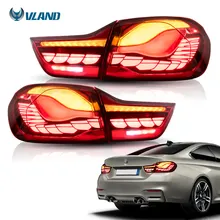
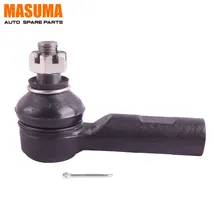



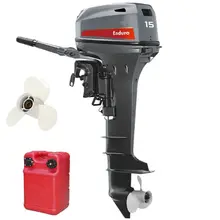
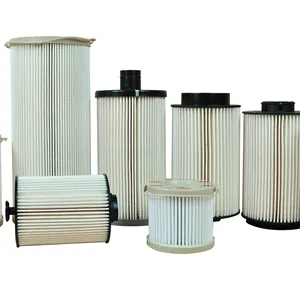



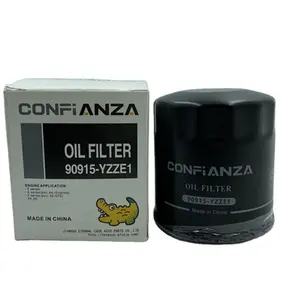

























 浙公网安备 33010002000092号
浙公网安备 33010002000092号 浙B2-20120091-4
浙B2-20120091-4